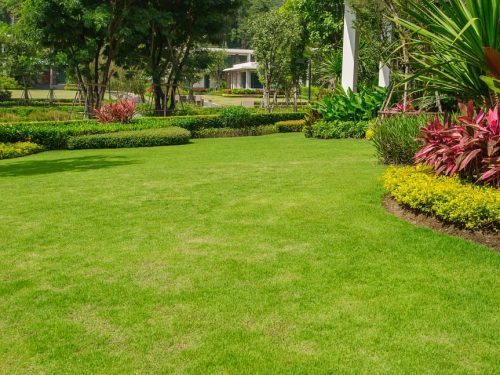Eco-Friendly Lawn Maintenance Tips for a Sustainable Yard

Creating a sustainable yard is not only beneficial for the environment, but it can also save you time and money in the long run. One important aspect of maintaining a sustainable yard is implementing eco-friendly lawn maintenance practices. By following these tips, you can reduce your carbon footprint and contribute to a healthier ecosystem.
One of the first steps to eco-friendly lawn maintenance is to limit the use of chemical fertilizers and pesticides. These products can not only harm the environment, but they can also be harmful to your health and the health of your pets. Instead, opt for organic fertilizers and natural pest control methods. You can make your own compost using kitchen scraps and yard waste, which will provide your lawn with nutrient-rich soil without the need for harmful chemicals.
Another important tip is to practice water conservation in your lawn maintenance routine. By watering your lawn early in the morning or late in the evening, you can reduce water evaporation and ensure that your grass gets the most benefit from each watering session. You can also invest in a rain barrel to collect rainwater, which can be used to water your lawn and garden. Additionally, consider planting native plants that are well-suited to your region's climate and require less water to thrive.
Mowing your lawn at the right height is crucial for maintaining a healthy and sustainable yard. Set your mower blade to the highest setting to allow grass to grow taller, which will help shade the soil and retain moisture. Taller grass also develops deeper roots, making it more drought-resistant and less susceptible to weeds. Leaving grass clippings on your lawn after mowing can also provide valuable nutrients back to the soil, reducing the need for additional fertilizers.
When it comes to maintaining a sustainable yard, it's important to think beyond just the grass. Consider incorporating native plants, shrubs, and trees into your landscape to create a diverse and resilient ecosystem. Native plants are adapted to your region's climate and soil conditions, making them easier to care for and less resource-intensive. They also provide food and habitat for local wildlife, contributing to the biodiversity of your yard.
Reducing the amount of waste produced in your yard is another key aspect of eco-friendly lawn maintenance. Instead of bagging grass clippings and leaves, consider composting them or using them as mulch in your garden beds. This not only reduces the amount of waste sent to the landfill but also provides valuable organic matter to improve soil health. By practicing sustainable waste management, you can create a closed-loop system that benefits both your yard and the environment.
Finally, consider incorporating eco-friendly lawn care practices into your routine, such as using manual or electric-powered lawn tools instead of gas-powered equipment. Gas-powered lawn mowers and trimmers contribute to air pollution and greenhouse gas emissions, so switching to more sustainable alternatives can have a positive impact on the environment. You can also look for battery-powered or rechargeable lawn tools that are more energy-efficient and produce less noise pollution.
By following these eco-friendly lawn maintenance tips, you can create a sustainable yard that benefits both the environment and your overall well-being. From reducing chemical use and conserving water to promoting biodiversity and minimizing waste, there are many ways to care for your lawn in an environmentally responsible manner. By making small changes to your lawn care routine, you can make a big difference in the health of your yard and the planet.